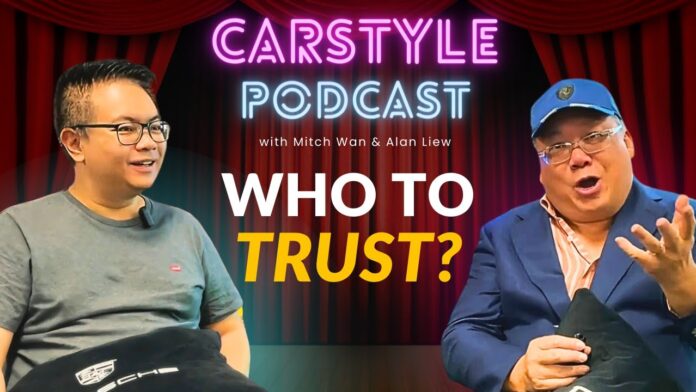In today’s digital age, the art of meeting new people, whether for personal connections, business ventures, or social gatherings, has taken a new turn. It’s no longer just about the excitement of expanding our social circles; it’s increasingly about caution and screening. But why has this become the norm, and how do we navigate this delicate balance without turning into a society of skeptics? Let’s dive into the heart of this topic, drawing insights from real-life experiences that shed light on the complexity of human interactions in our modern world.
Navigating the Waters of New Connections
Gone are the days when meeting someone new was as simple as a handshake and a smile. Today, with the proliferation of digital platforms and the increasing incidents of fraud and deceit, screening potential new acquaintances has become not just a precaution but a necessity. This trend isn’t just about avoiding financial scams; it’s about safeguarding our emotional and psychological well-being.
Take, for instance, the experience shared by Mitchell, who ventured into new friendships and business relationships with an open heart and a trust-first approach. Mitchell’s story is a testament to the complexities of human relationships. He met someone who seemed to embody the perfect blend of professional potential and personal camaraderie. However, as time unveiled, the person’s true colors emerged, leading to a realization that not all is as it seems.
The Double-Edged Sword of Trust
Trust, an essential element of any relationship, becomes a double-edged sword in these scenarios. On one hand, it’s the foundation upon which meaningful connections are built. On the other, misplaced trust can lead to disappointment, betrayal, and, at times, significant losses – both financial and emotional. Mitchell’s journey from unwavering loyalty to a painful awakening highlights a crucial lesson: the importance of due diligence.
Screening: A Necessary Step or a Barrier to Authentic Connections?
The concept of pre-screening isn’t about building walls; it’s about setting boundaries. It’s a mechanism to ensure that those we allow into our lives add value rather than detract from it. However, this raises an important question: In our quest to protect ourselves, are we at risk of losing the ability to make genuine connections?
Screening doesn’t mean closing the door on new relationships. Instead, it’s about opening it cautiously, armed with the right tools and mindset to assess the authenticity of those we meet. It’s about learning from experiences like Mitchell’s and understanding that while not everyone wears their true intentions on their sleeve, many people are still worth our trust and friendship.
Conclusion
As we navigate the complexities of human relationships in the digital age, let’s approach new connections with an open heart but a discerning mind. The balance between trust and caution is delicate but attainable. By sharing stories like Mitchell’s, we foster a community that values authenticity and learns from its collective experiences.
Let’s not shy away from making new connections; instead, let’s embrace them with the wisdom of our past and the hope for our future. After all, the next person we meet could be the friend or business partner we’ve been looking for. Just remember, a little screening goes a long way.
FAQs
- Why is screening new acquaintances important? Screening helps protect against fraud, deceit, and emotional harm by ensuring that new acquaintances are genuine and trustworthy.
- Does screening mean I shouldn’t trust people? Screening isn’t about distrust; it’s about being cautious and informed. It’s perfectly okay to trust people, but doing a little due diligence can help ensure that this trust is well-placed.
- How can I screen someone without offending them? Screening can be subtle, like checking publicly available information or observing their interactions with others. It’s about being mindful, not intrusive.
- Can screening affect the authenticity of a connection? If done sensitively, screening can protect without hindering the authenticity of a connection. It’s about ensuring safety, not creating barriers.
- What should I do if my screening raises red flags? If screening raises concerns, approach the situation with caution. It might be worth discussing your concerns directly or taking a step back to reassess.
- Is it okay to screen someone for a business relationship? Absolutely. In business, it’s essential to know who you’re dealing with to protect your interests and ensure a successful partnership.
- How has digital technology changed the way we screen people? Digital technology has made it easier to access information about people, from social media profiles to online reviews, making screening more accessible.
- What are some red flags to look out for? Red flags can include inconsistencies in stories, reluctance to share information, and negative feedback from mutual connections.
- Can I rely solely on online information for screening? While online information can be helpful, it’s also important to trust your instincts and consider personal interactions
Other ways to listen to our Podcast:
❤️ iHeartRadio » https://ihr.fm/3VsB33J
🍎 APPLE PODCASTS » https://apple.co/4cu6PU0
🟢 SPOTIFY » https://spoti.fi/3vryh44
📢 AMAZON » https://amzn.to/3xbtjJn
📚 AUDIBLE » https://adbl.co/3VyeBGg
📦 Castbox » https://bit.ly/3IUuv6t
🎙️ Youtube Podcast » https://bit.ly/3PYAqvl





